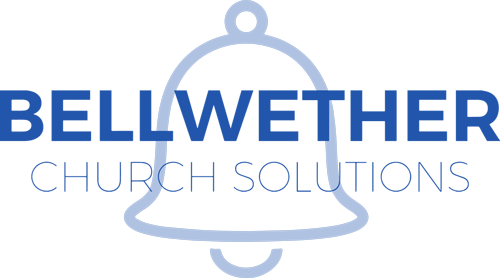Accountability and Budgeting – Accounting vs Accountability

Every organization has a limited amount of resources. Just like a family, a church must be aware and wise about how and when they spend their funds. Unfortunately, there will always be more need than there are resources. Deuteronomy 15:11 states “There will always be poor people in the land. Therefore, I command you to be openhanded toward your fellow Israelites who are poor and needy in your land.”
Because the church resources are limited and represent funds entrusted to them, church leaders have a fiduciary responsibility to ensure that every dollar is spent wisely.
Accounting vs Accountability.
Accounting is the means by which your church records what monies have been received and how they were spent. Accounting has the simple objective of reporting where the money was spent. It has nothing to do with whether or not the money was spent wisely.
Accountability measures whether or not the church has met its focus and mission by wisely spending its resources. Spending money wisely involves both establishing a budget based on carefully considered goals of the church and then evaluating if these goals were effectively met.
For example, let’s say your church established an Awana program with a $4,000 budget for the year. At the end of your fiscal year it appears that $3,650 were charged against the Awana program. Everyone is happy because they program stayed within their budget. However, it turns out that rather than the 75 children expected to be served there were only 5 children in the program. The focus on just the money does not always mean the money is spent wisely.
Who in your church is responsible for Accountability?
Few churches can justify having a full-time staff accountant or bookkeeper. This work often falls to a part-time employee, a volunteer or heaven forbid, even the pastor. Churches have different titles for these and related roles. Let’s define these further before delving further into accountability issues.
Bookkeeper, Financial Secretary
This person is responsible for seeing that all financial transactions are properly recorded. For many sall churches this may mean simply keeping the checkbook up to date. Or perhaps there is a spreadsheet with the various programs down the first column and months across the page and they are not only recording the transactions in the checkbook but assigning them to various programs as well. This person prepares the financial report for the leadership meetings. This individual normally reports to the Church Treasurer. Does your church operate with only a checkbook and a spreadsheet?
Treasurer
This is a leadership/board level position that is responsible for safeguarding the churches assets, ensuring bills are paid, reviewing the financial reports and communicating with the rest of the leadership team. Normally, this position along with the bookkeeper puts together the Operations Budget for the church. They may or may not have signature authority to bind the church in financial transactions such as contracts, loans and such.
Finance Committee
Oversees all financial activities. They are responsible to receive and review the reports provided by the Treasurer on a regular basis. They are normally involved in the review and approval of the budget prior to presentation to the congregation. They report to the Administrative Board/LeadershipTeam of the church.
Administrative Board/Leadership Team/Elder Board
Responsible for all areas of the church. Receive financial analysis from the Finance Committee and all other committees of the church. Often times, the pastor is a member of this team. These people are responsible and answer to the congregation.
Considerations for Your Church
- Do you have an organization chart established with clear lines of authority?
- Do you have appropriate persons, with the right expertise in each of these positions?
- Do you have clearly defined roles established in a church policy manual?
- How are you determining that you are spending wisely vs. just spending on your programs?
If your church is still functioning with just a checkbook and a spreadsheet, please take a look at GoodBooks today. There is no reason that you should not have better, more secure and more timely financial information with the advent of today’s technology. Every church can afford good books!
